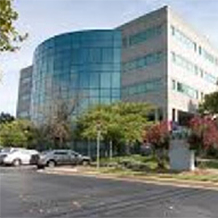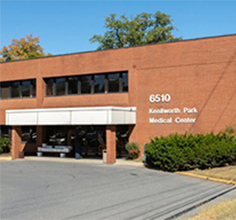
Crohn's disease is a chronic inflammatory condition that affects the digestive tract, causing a range of symptoms that can significantly impact daily life. While there's no cure for Crohn's disease, effective management strategies and treatments can help control symptoms and improve quality of life.
In this brief guide brought to you by Southern Maryland Medical Group, we'll explore the fundamentals of Crohn's disease, including its risk factors, symptoms, and available treatment options. Remember that this information is NOT medical advice, and you should consult a licensed primary care physician for accurate diagnosis and personalized care.
Crohn's disease is characterized by inflammation in various parts of the digestive tract, including the small intestine and colon. This chronic inflammation can lead to tissue damage and a range of gastrointestinal symptoms.
Inflammation is a natural and necessary process that occurs in the body as part of the immune response to harmful stimuli. It's the body's way of defending itself against infection, injury, or irritation and plays a crucial role in healing and protecting tissues.
While the exact cause of Crohn's disease is unknown, several factors may contribute to its development: genetics, immune system dysfunction, environmental factors, and a history of smoking.
The symptoms of Crohn's disease can vary widely among individuals but commonly include:
Diagnosing Crohn's disease typically involves a combination of medical history review, physical examination, laboratory tests (such as blood tests and stool tests), imaging studies (such as X-rays, CT scans, or MRIs), and possibly endoscopic procedures (such as colonoscopy or upper endoscopy) to visualize the digestive tract and assess for inflammation or tissue damage.
While there is no known cure for Crohn’s disease at the time of this writing, there are several treatment and management options for those suffering from Crohn’s disease.
Several types of medications are used to manage Crohn's disease and reduce inflammation. These may include anti-inflammatory drugs, immunosuppressants, biologic therapies, antibiotics, and medications to control symptoms such as diarrhea and pain.
Certain dietary changes, such as avoiding trigger foods, maintaining a well-balanced diet, and incorporating nutritional supplements as needed, can also help manage symptoms and improve nutritional status in individuals with Crohn's disease.
Managing stress, getting regular exercise, staying hydrated, and getting adequate rest can contribute to overall well-being and may help reduce symptom flare-ups in some individuals.
In rare cases where medications and other treatments are not effective or complications arise, surgery may be recommended to remove damaged portions of the digestive tract, repair strictures (narrowed areas), or address complications such as abscesses or fistulas.
While this guide provides an overview of Crohn's disease, we want to emphasize the role of dependable primary care doctors in accurately diagnosing and managing this condition. Qualified physicians can conduct a thorough evaluation and diagnostic tests, develop a personalized treatment plan, monitor and manage your condition over time, and provide valuable resources and support to help you navigate living with Crohn's disease.
If you would like to consult with an experienced primary care physician, then call Southern Maryland Medical Group to schedule an appointment or arrange a walk-in for as soon as possible.
Southern Maryland Medical Group has 3 convenient locations to provide professional medical care services in the Southern Maryland area. Call or schedule an appointment with one of our locations to get medical care help.

5801 Allentown Road, Suite 400 Camp Spring, MD 20746
Phone: 301-868- 0150
Billing Inquiries: 301-552-1270
Fax: 301-868-0243

7500 Greenway Center, Dr #1200 Greenbelt, MD 20770
Phone: 301-486-7580
Billing Inquiries: 301-552-1270
Fax: 301-486-7581

6510 Kenilworth Ave, Ste 1400, Riverdale MD 20737
Phone: 301-618-0771
Billing Inquiries: 301-552-1270
Fax: 301-618-0772